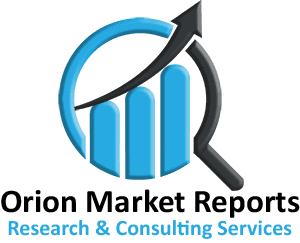Safeguarding Food Chains: An In-depth Look at the Pathogen Food Safety Testing Market
Pathogen Food Safety Testing was estimated by 2030 with a CAGR of 6.5% during the forecast period 2024-2030. Ensuring the safety of the global food supply chain is a paramount concern, with foodborne pathogens posing significant risks to public health. The Pathogen Food Safety Testing Market has emerged as a critical component in safeguarding consumers by providing advanced testing solutions to detect and prevent the presence of harmful pathogens in food products. This report explores the key facets of the Pathogen Food Safety Testing Market, including its growth drivers, current trends, challenges, and future prospects.
Global Pathogen Food Safety Testing Companies Covered
SGS, Eurofins, Intertek, Mérieux, ALS Limited, TUVSÜD, Microbac Laboratories, Bureau Veritas, Neogen Corporation, Bio-Rad Laboratories, Romer Labs, Qiagen
Global Pathogen Food Safety Testing Market, Segment by Type
- Traditional Culture-based Methods
- PCR-based Methods
- Rapid Testing Technologies
- Others
Global Pathogen Food Safety Testing Market, Segment by Application
- Coli
- Salmonella
- Campylobacter
- Listeria
- Others
Market Dynamics:
Increasing Incidence of Foodborne Illnesses:
The growing number of foodborne illnesses worldwide has heightened awareness of the importance of pathogen testing in the food industry. Pathogen food safety testing is crucial for identifying and mitigating risks associated with pathogens such as Salmonella, E. coli, Listeria, and Campylobacter.
Stringent Food Safety Regulations:
Stringent regulatory frameworks imposed by governments and international bodies drive the demand for robust pathogen testing solutions. Compliance with regulations ensures that food products meet safety standards, protecting both consumers and the reputation of food producers.
Globalization of Food Supply Chains:
The globalization of food supply chains increases the complexity of monitoring and ensuring food safety. Pathogen testing becomes essential to detect and prevent the spread of pathogens across borders, particularly with the rise in international trade of food products.
Advancements in Testing Technologies:
Technological advancements, such as the development of rapid and molecular testing methods, have significantly enhanced the efficiency and accuracy of pathogen food safety testing. These innovations enable quicker detection, reducing the time and resources required for testing.
Current Trends:
Adoption of Next-Generation Sequencing (NGS):
Next-generation sequencing is gaining traction in pathogen testing, allowing for the rapid and comprehensive identification of pathogens in food samples. NGS provides a high-throughput solution for analyzing genetic material, enabling precise pathogen detection.
Blockchain Technology for Traceability:
Blockchain technology is being integrated into food safety testing systems to enhance traceability throughout the supply chain. This trend ensures transparency and enables swift identification of the source of contamination in case of a food safety issue.
Focus on Automation and Robotics:
The adoption of automation and robotics in pathogen testing laboratories is increasing. Automated systems streamline the testing process, improve efficiency, and reduce the risk of human error, contributing to more reliable and consistent results.
Challenges:
Complexity of Food Supply Chains:
The complexity and global nature of food supply chains pose challenges in effectively monitoring and controlling the spread of pathogens. Ensuring comprehensive testing coverage across the supply chain remains a significant challenge.
Cost of Advanced Testing Technologies:
While advanced testing technologies offer improved accuracy and speed, the initial costs and ongoing expenses associated with these technologies can be a barrier for some food producers, particularly smaller enterprises.
Future Prospects:
Integration of Artificial Intelligence (AI) and Machine Learning (ML):
The integration of AI and ML in pathogen testing is anticipated to increase. These technologies can analyze large datasets, identify patterns, and enhance the predictive capabilities of testing systems, leading to more efficient and accurate pathogen detection.
Mobile and Point-of-Care Testing Solutions:
The development of mobile and point-of-care testing solutions for pathogens is expected to grow. These portable and rapid testing technologies can be deployed at various points in the supply chain, enabling real-time detection and response.
Conclusion:
The Pathogen Food Safety Testing Market plays a pivotal role in safeguarding global food supplies from contamination and ensuring consumer safety. As the industry continues to evolve, embracing technological innovations, addressing challenges, and adhering to stringent regulations will be essential. The future promises a more connected and automated approach to pathogen testing, contributing to a safer and more secure food supply chain globally.
The report will be delivered within 48-72 hours after payment confirmation
